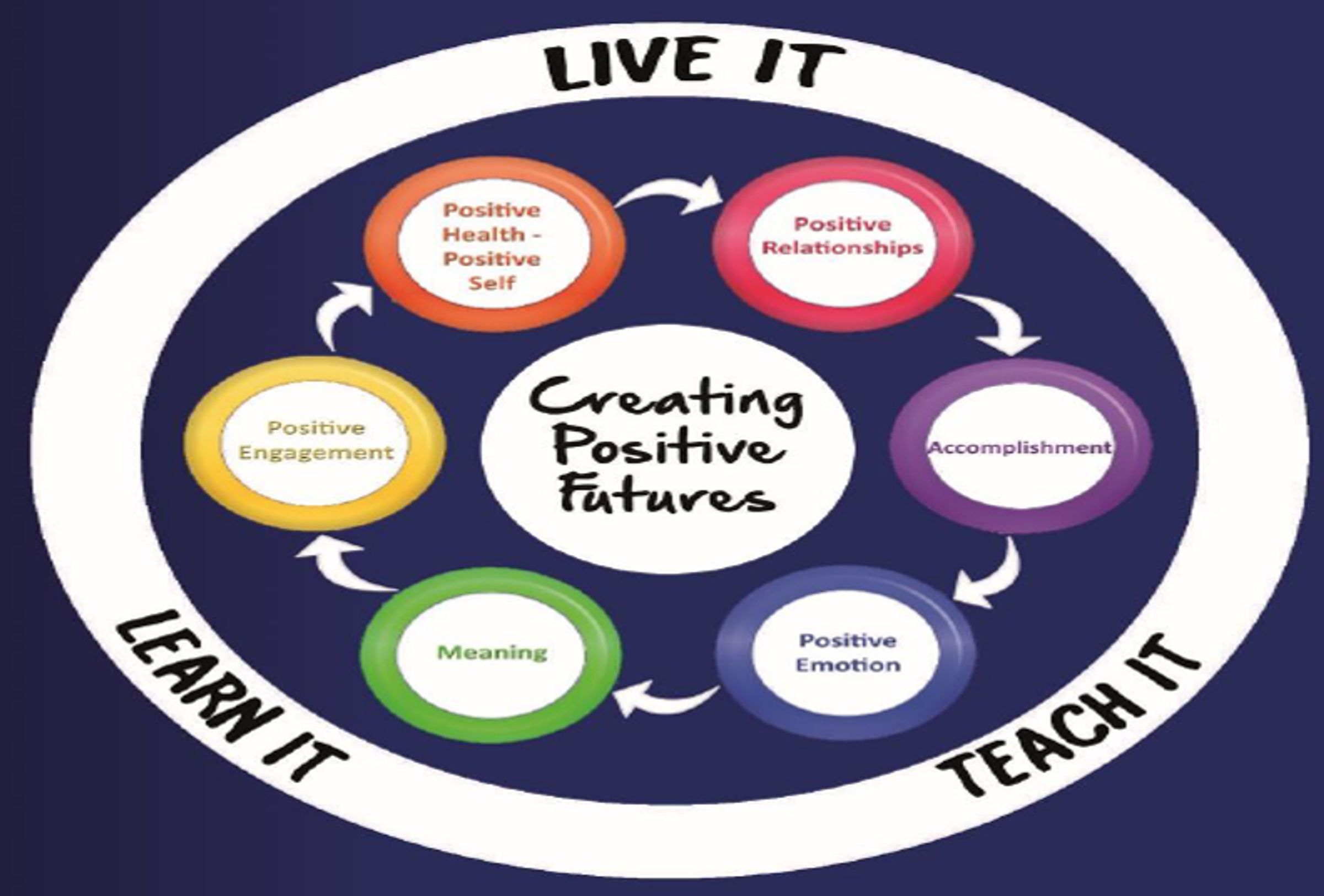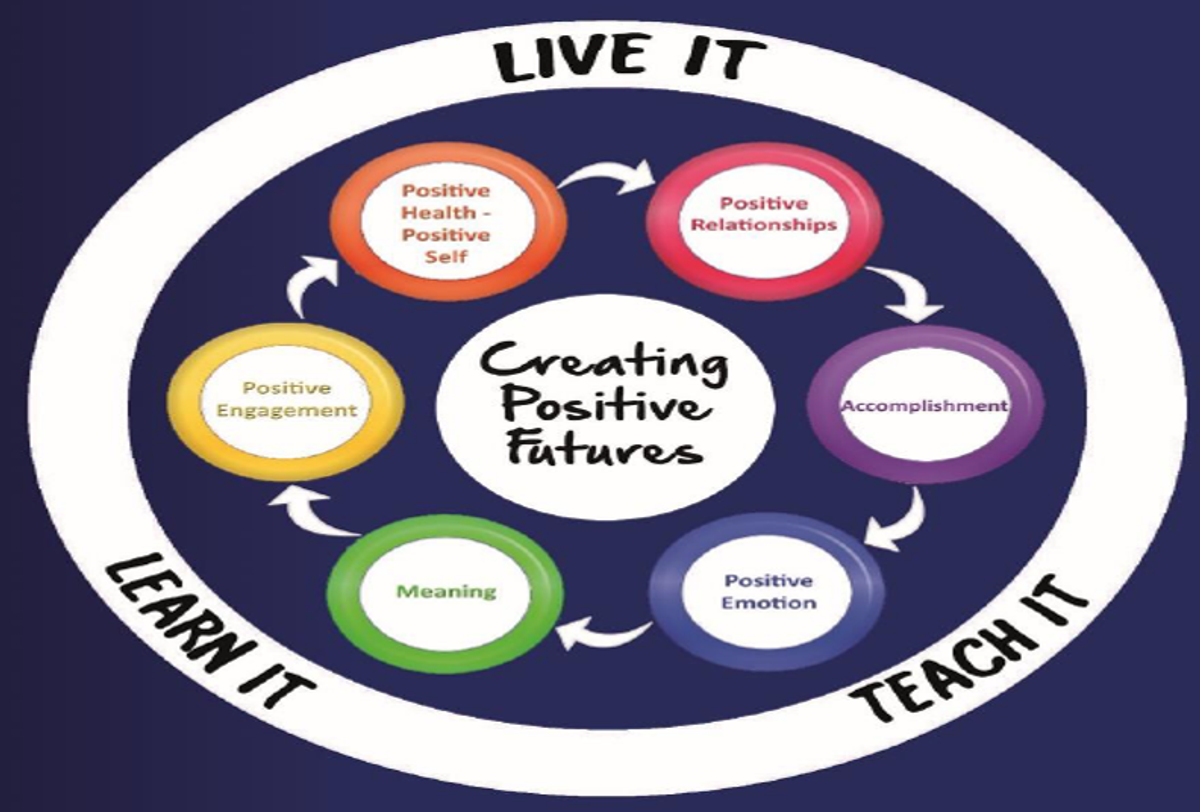
Positive Futures News
What is the EDSC Positive Futures program?
Positive Education brings together the science of positive psychology with best-practice teaching.
The school’s journey with Positive Education began in 2012 with Positive Education focuses and values implemented across each year level and over time has evolved into the whole school approach launched in 2020.
Our Positive Futures program has some very clear goals:
- We want to improve student quality of life and their engagement with others, including with their teachers
- We seek to develop students in a more holistic way, with a stronger focus on wellbeing
There are six tenets of Positive Psychology that are embedded into our model:
Positive Health – Positive Self
Developing knowledge, understanding and skills to promote health and well – being.
Positive Relationships
Nurturing positive relationships based on respect.
Accomplishment
Generating hope and optimism through the accomplishment of personal and community goals
Positive Emotion
Building and experiencing positive emotion.
Meaning
Believing in serving something greater than ourselves.
Positive Engagement
Developing critical thinkers by promoting challenge, curiosity and creativity.
More resources and information can be found here:
https://www.eastdonsc.vic.edu.au/wellbeing-engagement-positive-futures
4 Health Benefits of Giving to Others
'Tis the season of giving. Giving to those less fortunate than yourself can have long-lasting physical and psychological benefits.
Charity can boost both mental and physical health. Research shows that those who volunteer live longer and have happier lives. Charitable giving delivers a host of benefits to the body and brain. So whether you give your time or money, you can experience:
- Lower blood pressure.
- Lower stress levels.
- Less anxiety and depression.
- Increased self-esteem.
Four reasons to begin a tradition of giving:
Giving makes you feel happy. Your brain's pleasure circuits are stimulated by acts of charity and release "good feeling" chemicals such as endorphins, which give you a sense of euphoria, and oxytocin, which promotes tranquility and inner peace.
Giving is good for your health. Stress is the catalyst for many known health issues. Giving has been proven to decrease blood pressure and reduce stress. This reduction promotes longer life and better health.
Giving promotes social connection. Studies show that when you give to others, your generosity is often continued down the line to someone else, or returned to you. This strengthens our ties to each other.
Giving is contagious. When one person gives, it inspires others to do the same.
Doncare Wishing Trees
We encourage you to embrace the festive cheer to help families doing it tough in Manningham at Christmas time. Hundreds of individuals and families give to children less fortunate by donating at Doncare’s Wishing Trees. Donated gifts form part of Doncare’s pop up Christmas shop to give families experiencing hardship the opportunity to choose toys for their children for Christmas.
Doncare’s Wishing Trees are located at:
- Bulleen Plaza
- Warrandyte Library
- North Blackburn Shopping Centre
- Aquarena
- Stockland The Pines Shopping Centre
- Manningham City Council
- Doncaster Library at MC2.
- Bank of Melbourne, The Pines
- Cairnmiller
Simply take a tag from the tree and donate a new toy for a child or a gift card for a teenager.
Positive Futures Book of the Week
You are Awesome - Matthew Syed
Praised by Dermot O'Leary, two-time Olympian Matthew Syed's You Are Awesome is a motivational book that encourages children to challenge the beliefs that hold them back. Full of tips and advice that will inspire a more positive mindset, it's encouraging and empowering reading for any introverted children. Matthew explains how having a negative attitude and thinking you can't do things more often than not leads to not being able to carry out tasks. However, if your children can build their resilience and change their mindset, things could be very different. He looks at how everyone from Mozart to Serena Williams got to the top of their respective fields through hard work and dedication and how kids can use these figures as inspiration on their way to becoming happy, successful adults.
Rebecca James
Student Engagement and Connection Learning Specialist



